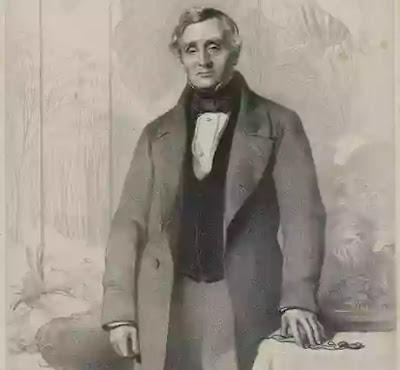Also Read
In 1647 Nathaniel Bagshaw Ward, who had been educated for the law, but who afterward became a clergyman, published a strange work known as The Simple Cobbler of Agawam, in America "willing," as the sub-title continues, "to help mend his native country, lamentably tattered, both in the upper leather and sole, with all the honest stitches he can take." He had been assistant pastor at Agawam (Ipswich) until ill health caused him to resign. He then busied himself in compiling a code of laws and in other writing before he returned to England in 1647. The following two sentences from his unique book show two points of the religious faith of the Puritans: (1) the belief in a personal devil always actively seeking the destruction of mankind, and (2) the assumption that the vitals of the "elect" are safe from the mortal sting of sin.
Nathaniel Ward was born in Essex and he immigrate to Massachusetts in 1634. He was a visitor as he was colonist. During his twelve years stay in New England he became a part of Massachusetts life. Being a son of Suffolk Puritan minister, John Ward, he was in a sectarian ecclesiastical atmosphere in which orthodox Purita doctrine was to be his meat and drink. He received M.A from the Emmanuel College, Cambridge in 1603. In his higher education he was typical of many influential Puritans: After studying the Law at Lincoln’s Inn, he became a full-time barrister in 1615; but he gave up his lucrative career in order to enter the ministry in 1618. His Purita leanings became strongly pronounced for Archbishop Lou who excommunicated Ward for nonconformity from tr Church of England in 1633. Consequently, Ward migrated to America in 1634 to serve as a pastor at Ipswich, and the called Aggawam which gave The Simple Cobbler of Aggawam (1645) and was published in London in 1647.
After two years of ill health, Ward resigned his pastorate. Instead of retiring from the a flairs of the Church and State, he became the leader of Massachusetts Bay theocracy until he returned to England in 1646. As a legal authority, he set up a series of Massachusetts Laws that were published as The Body of Liberties in 1638. Further, it laid foundation to an important feature of the development of American constitutional history. In American literary history, he was remembered for his “Simple Cobbler” a part of the long original title. It was published under the pseudonym of
Theodore de la Guard in 1647 and it was typical by unexceptional as an example of New England Puritanism. It is exceptional in its rhetoric yet simple plain style. The work advocates persecution for the cause of conscience, religious conformity in a sectarian-torn age, in strict conservatism in the matter of customs, manners, economics, politics and church. With its no nonsense air, “Simple Cobber” is the most excellent reflection of the strict rigidity of the Massachusetts Bay Puritanism. The Tenth Muse is a poem written by him and published later in Anne Bradstreet’s collection.
"Satan is now in his passions, he feels his passion approaching, he loves to fish in roiled waters. Though that dragon cannot sting the vitals of the elect mortally, yet that Beelzebub can fly-blow their intellectuals miserably."
He is often a bitter satirist, a sort of colonial Carlyle, as this attack on woman shows:—
"I honor the woman that can honor herself with her attire; a good text always deserves a fair margent; I am not much offended if I see a trim far trimmer than she that wears it. In a word, whatever Christianity or civility will allow, I can afford with London measure: but when I hear a nugiperous gentledame inquire what dress the Queen is in this week: what the nudiustertian fashion of the Court; I mean the very newest; with egg to be in it in all haste, whatever it be; I look at her as the very gizzard of a trifle, the product of a quarter of a cipher, the epitome of nothing, fitter to be kicked, if she were of a kickable substance, than either honored or humored."
He does not hesitate to coin a word. The preceding short selection introduces us to "nugiperous" and "nudiustertian." Next, he calls the women's tailor-made gowns "the very pettitoes of infirmity, the giblets of perquisquilian toys."
The spirit of a reformer always sees work to be done, and Ward emphasized three remedies for mid-seventeenth-century ills: (1) Stop toleration of departure from religious truth; (2) banish the frivolities of women and men; and (3) bring the civil war in England to a just end. In proportion to the population, his Simple Cobbler, designed to mend human ways, was probably as widely read as Carlyle's Sartor Resartus in later days.
In criticism, Ward deserves to be remembered for these two lines:—
"Poetry's a gift wherein but few excel;He doth very ill that doth not passing well."
